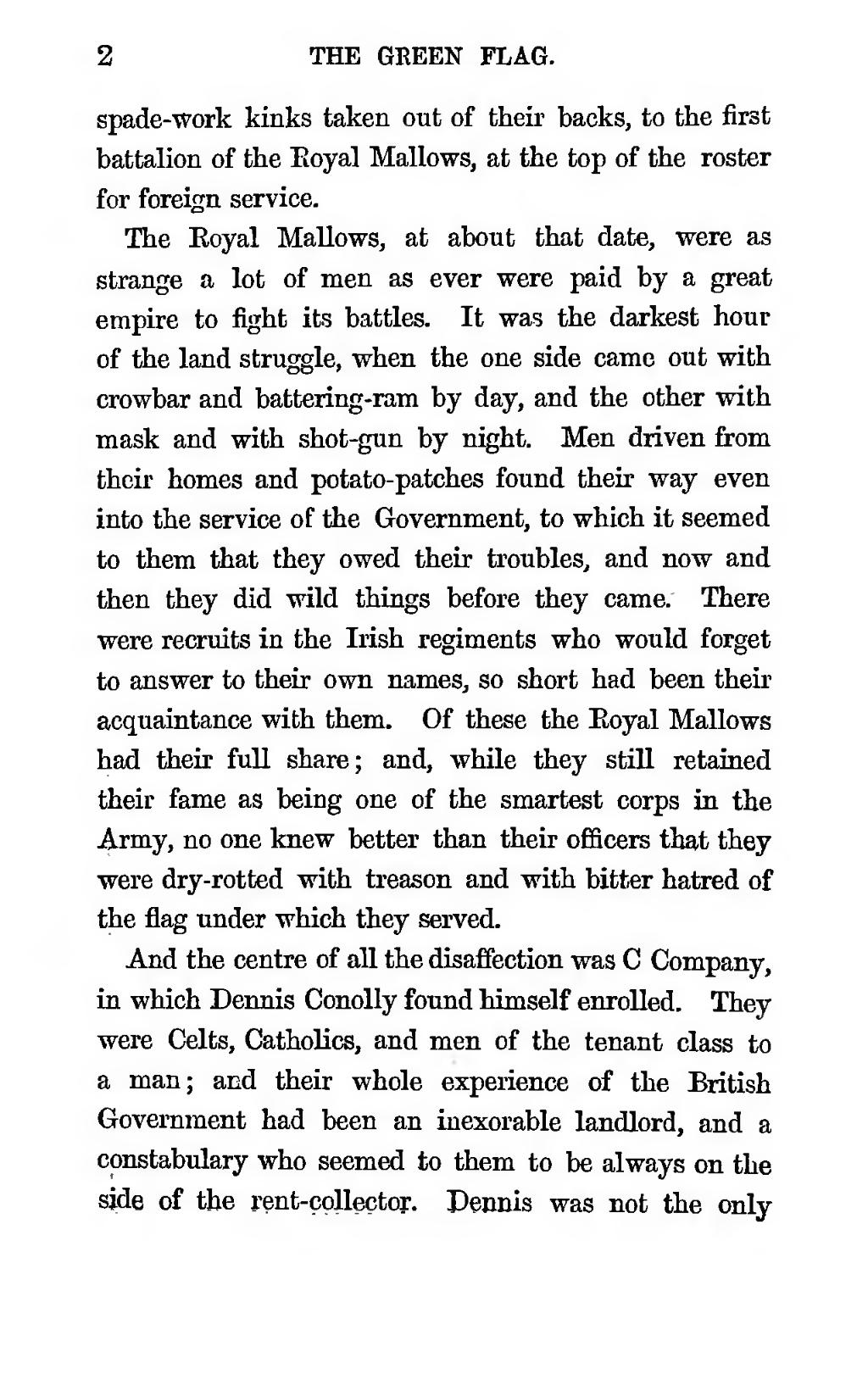spade-work kinks taken out of their backs, to the first battalion of the Royal Mallows, at the top of the roster for foreign service.
The Royal Mallows, at about that date, were as strange a lot of men as ever were paid by a great empire to fight its battles. It was the darkest hour of the land struggle, when the one side came out with crowbar and battering-ram by day, and the other with mask and with shot-gun by night. Men driven from their homes and potato-patches found their way even into the service of the Government, to which it seemed to them that they owed their troubles, and now and then they did wild things before they came. There were recruits in the Irish regiments who would forget to answer to their own names, so short had been their acquaintance with them. Of these the Royal Mallows had their full share; and, while they still retained their fame as being one of the smartest corps in the Army, no one knew better than their officers that they were dry-rotted with treason and with bitter hatred of the flag under which they served.
And the centre of all the disaffection was C Company, in which Dennis Conolly found himself enrolled. They were Celts, Catholics, and men of the tenant class to a man; and their whole experience of the British Government had been an inexorable landlord, and a constabulary who seemed to them to be always on the side of the rent-collector. Dennis was not the only
